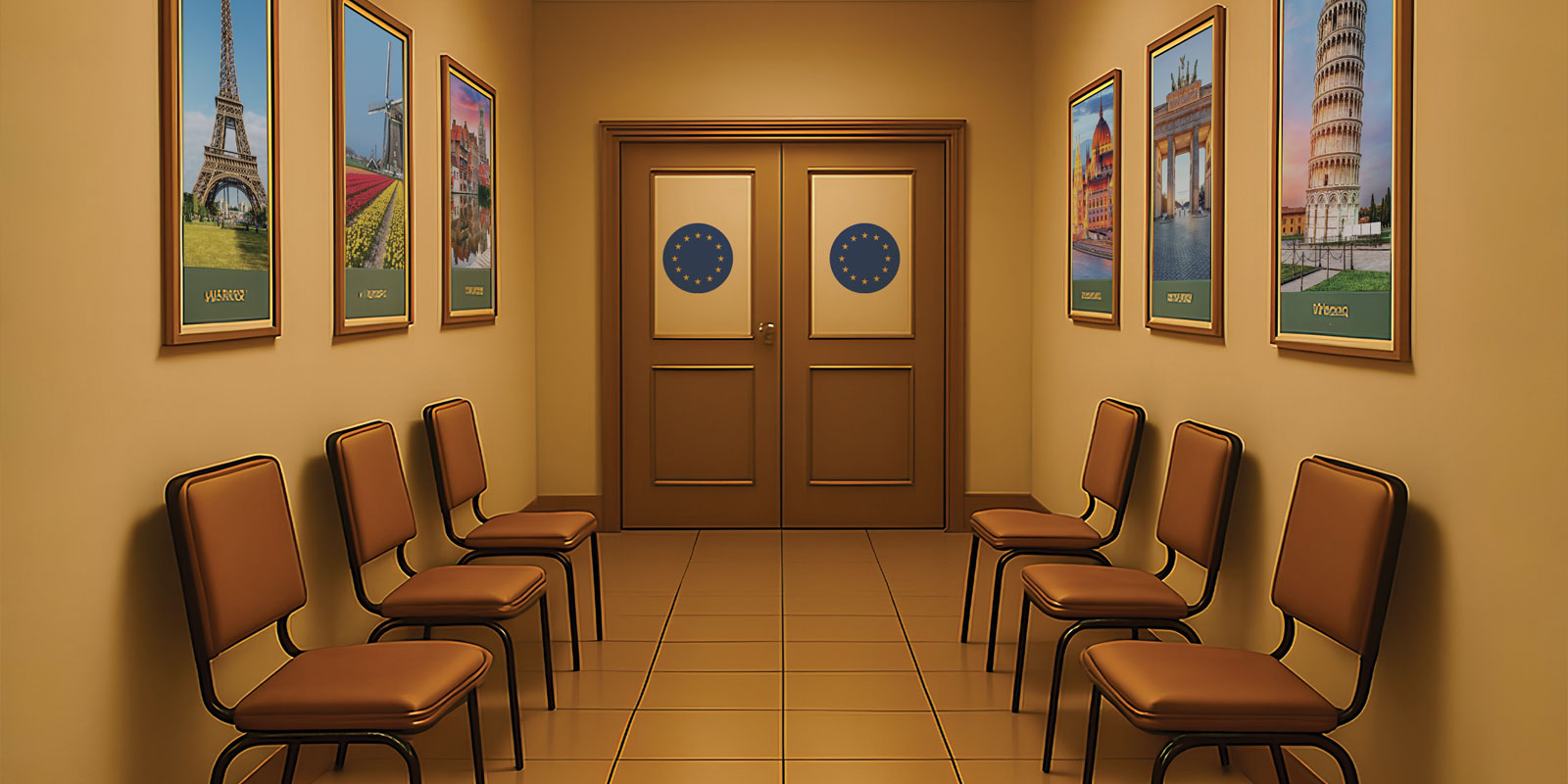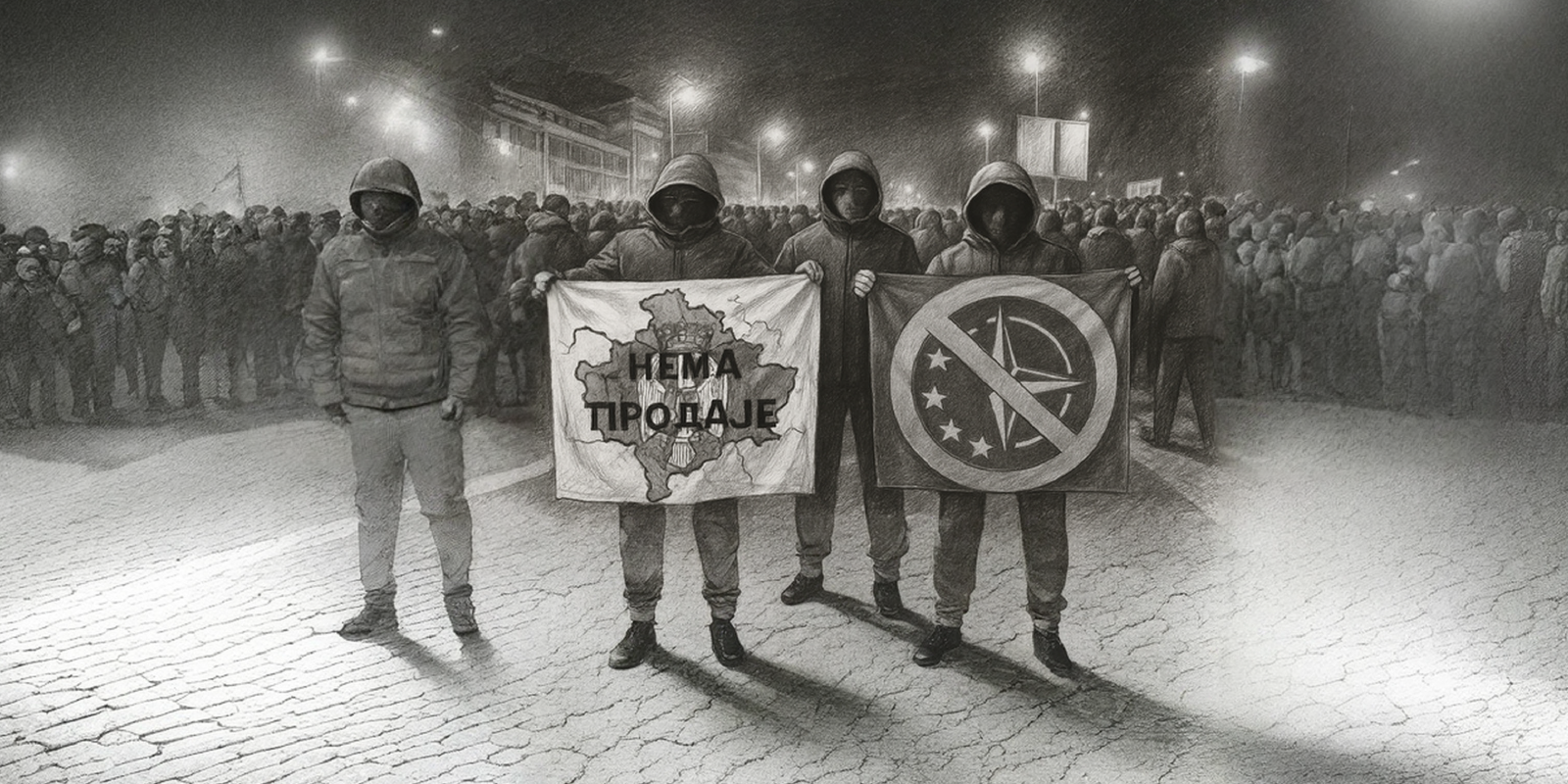PUBLICATION: Analysis
Serbia’s Election Results: Vucic’s SNS Victory Amidst Vast Irregularities
Amidst controversy and irregularities, the Serbian Progressive Party secures electoral victory. The emergence of a new political force led by conspiracy theorist Branimir Nestorović adds a wildcard to the country's political landscape.
Snap parliamentary and local elections on December 17th resulted in a surprisingly strong victory of the Serbian Progressive Party (SNS) of President Aleksandar Vučić. The pro-EU “Serbia against Violence coalition” also had a good result. However, the elections were influenced by vast electoral irregularities, especially in Belgrade, seeming likely to plunge Serbia into another political crisis.
Vučić’s SNS won 46,1% of the votes and will be able to form a new national government on its own. The SNS also appears to have won in most local elections, including in capital Belgrade where it secured 39,35% of votes. However, the results in the capital are contested by the opposition and the fate of the process remains uncertain.
The elections also marked an historical result for the pro-EU opposition, united in the “Serbia against Violence” coalition (SPN), which secured 23,58% of the votes, significantly better than the previous record set by any opposition list under Aleksandar Vučić (that being 14% of the “United” coalition in 2022). The coalition was comprised of several pro-EU parties and movements, ranging from green-left to centrist. It also won 34,26% in Belgrade.
Right-wing opposition parties have been the relative losers of the elections, with only one of four r lists passing the 3% threshold and entering the national parliament. However, by far the biggest surprise of the elections was the 4,69% result secured by a new political movement led by conspiracy theorist Branimir Nestorović.
More votes for the SNS, but less for the government
The good result of the SNS comes as a surprise after a year of political crisis and an alleged loss of popularity of the government. The year was marked by the largest anti-government protests since 2000 after mass shootings in May, soaring inflation, and escalating economic crisis.
In these circumstances, the SNS managed to secure around 145,000 more votes than last year and significantly surpass most projected results. However, a close look at election results suggests that these votes were “taken” from their coalition partner Socialist Party of Serbia (SPS), which had much better results in 2022 and which mostly shares its voter base with the SNS.
The socialists won just 6.67% of votes, which is only around half of what they obtained in the parliamentary elections last year. This almost historical bad result of the SPS might result in FM Ivica Dačić’s resignation, but the SPS appears to remain an important partner for the SNS on the local level.
The SNS and the SPS won a smaller percentage of votes together than in the previous elections, demonstrating that assumptions about government’s declining popularity were not that misplaced.
Unfair election campaign and voting day irregularities
Certainly, contributing to this outcome were the unfair and undemocratic electoral conditions, including irregularities on election day. Reports from the ground, documenting evidence of vote-buying and other electoral manipulations, have been steadily appearing on social media . Electoral irregularities began long before election day, when forgeries of signatures for nomination of lists were discovered, without any legal consequences.
These elections, in which President Vučić, although not running for any position, was a crucial figure, demonstrated that the European parliament mediated dialogues between government and opposition regarding the improvement of electoral conditions did not bring any tangible improvements.
The biggest controversy in these elections were the so-called “phantom voters” – citizens from Serbia and Republika Srpska who do not live in Belgrade, but were registered to vote in the local elections by the ruling party. The opposition claims that there were over 40.000 such votes, which was enough to give SNS the lead in Belgrade. Journalists and activists revealed a few locations throughout Belgrade where voters were gathered and taken to vote.
According to finding of the Crta monitoring mission, during the first 36 days the ruling majority and President of Serbia occupied 75% of the prime-time coverage, while the opposition was only allocated the 25%, of which opposition parties were more often portrayed negatively (27%), while government almost never negatively (1%).
Right-wing opposition pays the price for disunity
Unlike pro-European parties which united in the “Serbia against Violence” coalition, right-wing opposition parties did not manage to reach an agreement to form a single electoral list. Projected to win around 12% of the vote in total, the disunited right-wing opposition largely remained below the 3% threshold.
The NADA coalition comprised of the New Democratic Party of Serbia (DSS) and Movement for the Restoration of the Kingdom of Serbia (POKS) won around 5,03% of the vote on the national level and 6.01% in Belgrade, surpassing previous projections.
The NADA coalition took a strong anti-government stance, committed against cooperation with the SNS on any level and announcing cooperation with “Serbia against Violence” after the elections.
The other right-wing coalition “National Rally”, comprised of Dveri and Zavetnici previously touted as the strongest right-wing list, won only 2.78% of the votes on the national level and stayed below the threshold both in Serbia and Belgrade. The two parties had twice as many votes in last year’s elections.
Unlike NADA, representatives of the National Rally put the Kosovo issue first and did not rule out the possibility of cooperation with the SNS, if it rejects the Franco-German plan for Kosovo (which resulted in Brussels/Ohrid agreements). Some analysts assess that the coalition’s poorer performance is a result of its insufficient distancing from the SNS.
Other right-wing lists which insisted on the Kosovo issue within the campaign, Vuk Jeremić’s People’s Party (NS) and “Good Morning, Serbia” coalition, comprised of Enough is Enough (DJB) and Boris Tadić’s Social Democratic Party (SDS) fared even worse, winning 0,88% and 1,18% respectively.
Conspiracy theorist: a power broker in Belgrade?
The biggest surprise of these elections is the result of “We, the Voice of the People” movement (MI) led by controversial doctor Branimir Nestorović. The election results in Belgrade are such that the future government will likely depend on this completely new player on the political scene, who emerged with his movement only 45 days ago.
Nestorović is considered to be one of the best Serbian pulmonologists, and he became famous in Serbia at the beginning of the COVID-19 pandemic, when during a press conference alongside president Vučić, he claimed that COVID 19 is the “funniest virus in history of mankind” and recommended Serbian women to go shopping in Italy.
He was a supporter of conspiracy theories that relativized the pandemic and opposed vaccination. Topics which he spoke about include parallel universes, black holes, and a portal to another dimension, which, as he claims, is controlled by CERN.
Nestorović also frequently promoted anti-Western and pro-Russian narratives in public. On last year’s elections, he supported the conservative far-right party Dveri, but this year he decided to run with his newly formed movement.
The way forward: Push for authoritarianism or pro-EU opposition?
The election results seem likely to solidify Vučić’s grip on power and diminish the chances for the return of genuine political pluralism. Therefore, authoritarian tendencies are expected to strengthen rather than weaken after these elections.
However, a strong result of the SPN coalition means that for the first time in almost 10 years in Serbia there will be a strong pro-EU (or any kind of) opposition that could represent a genuine alternative. If the coalition does not disband, it could finally break the long-existing stereotype about the Serbian opposition being weak and divided.
Finally, it remains to be seen what will happen with the elections in Belgrade, where the SPN coalition declared it will not accept the results due to electoral irregularities, especially “phantom voters” from other cities and countries.
Both domestic and ODIHR observers came out with harsh assessment of the quality of elections, giving more credence to opposition’s claims. It seems almost certain that Serbia will witness a politically warm winter.
Tags: Serbian elections
AUTHORS
SHARE
PDF PREVIEW
RELATED

Date: 22.10.2025.
Author: Jelena Pejić Nikić |
This policy paper examines Western Balkan stakeholders' perspectives on what is needed for meaningful enlargement and the EU reforms they consider essential for an effective expanded Union. Field research in spring and summer 2024 included 16 high-level interviews with representatives from all six countries of the region.

Date: 13.10.2025.
Author: Belgrade Centre for Security Policy
The subject of analysis is the content related to student and civic protests distributed on the Telegram channel “BUNT je stanje duha.”

Date: 04.08.2025.
Author: Vuk Vuksanović |
The analysis is based on the "Security Radar" public opinion survey conducted by the Friedrich Ebert Stiftung in selected European countries, including Serbia, and a comparison of public opinion findings for 2022 and 2025.



